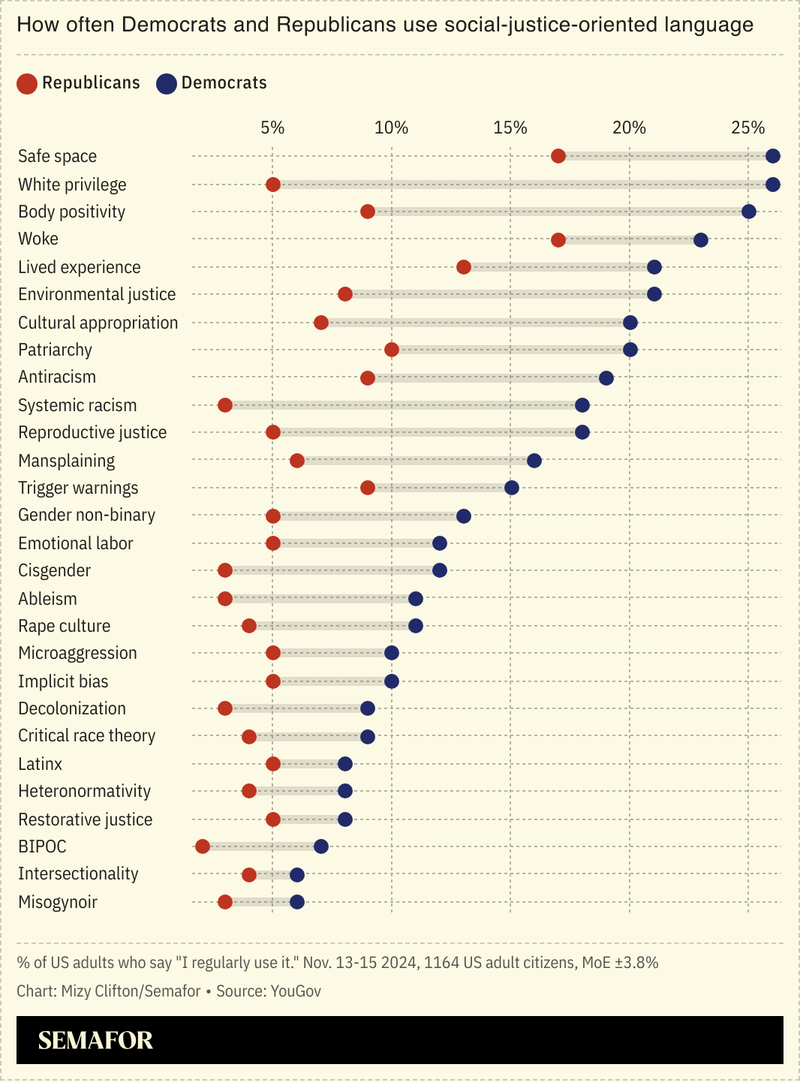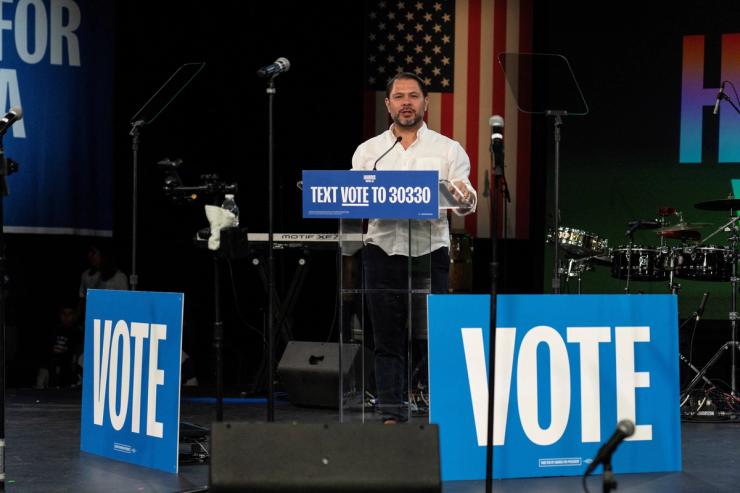The Scoop
Few Americans use the so-called “woke” terminology that Republicans ran against and that Democrats have walked away from, according to post-election polling conducted by YouGov.
Just 20% of adults said that they regularly used the term “safe space,” the most popular of the 30 terms tested last week, according to the poll shared first with Semafor. Fifty-six percent of adults said that they’d heard the term, but don’t regularly use it. Majorities said the same about the terms “white privilege” (64%), “trigger warnings” (55%), “gender non-binary” (54%), and “woke” itself.
Other terms were even less widely adopted. Just 5% said that they used “Latinx,” a term Democrats abandoned years ago but is often cited as a stand-in for unrelatable progressive language; a majority of adults said that they’d never even heard of “BIPOC,” a term for “Black, indigenous, and people of color” that progressives have used more widely over the last 10 years. (The YouGov poll of 1194 adults was conducted between Nov. 13 and Nov. 15.)
“While majorities of Americans are familiar with most of the terms in our survey, very few Americans say they use them regularly, including those who voted for Donald Trump or Kamala Harris — though more Harris voters do,” said Taylor Orth, the director of survey data journalism at YouGov. “We also observed some differences in familiarity based on age, education, and race, but within all groups, regular usage of these terms is rare.”
Use of these terms was mostly concentrated among Democrats, with few Republicans saying they used or had heard of words popular on the left. Republicans said that they most frequently used the terms “woke” (17%) and “safe space” (17%), both of which have been used by conservatives to mock liberals for years; a 2019 documentary about comedians trying to convince college students to be less sensitive was titled “No Safe Spaces.”

In this article:
David’s view
Democrats and liberal pundits have warned that activists use language that alienates working-class Americans as they search for changes they can make post-election defeats.
This isn’t a new problem, or a new discussion. Latino Democrats like Arizona Sen.-elect Ruben Gallego said for years that nobody in their communities says “Latinx.” No Democratic campaign ads used it this year — even if some groups on the left still say it internally.
Still, the YouGov data is useful for showing just how little most people use this language, unless they’re hearing a conservative or Republican candidate denounce it.
Just 15% of Black adults said they used the term “antiracism,” and 47% said they had heard it but don’t use it, five years after Ibram Kendi’s book deploying that term made it mainstream in Democratic politics. Forty-eight percent of adults said they’d never even heard the term “ableism.” Go on X right now and you’ll find the other 52%, debating whether it’s unsafe to hold meetings without mandatory face-masking.
I watched every paid political message I could over the last year, and can confirm that Democrats use very different language than academics when they’re trying to sway voters. YouGov’s polling also found just a small, split share of voters with strong opinions on the woke/anti-woke question — 19% defined themselves as the first, 19% as the second, and the rest said they saw themselves as neither or just didn’t care.
The View From Democrats
Ohio Rep. Greg Landsman, who won a second term this month and is running to represent Democrats in “battleground” districts in the party’s House leadership elections today, said in an interview that his party needs to think clearly about how it speaks.
“Is it language that people use every day, or is it political language?” he said. “Is it Twitter language, is it partisan language, is it politician-y language? Or is it the stuff that you hear when you’re talking to people in real life?”


